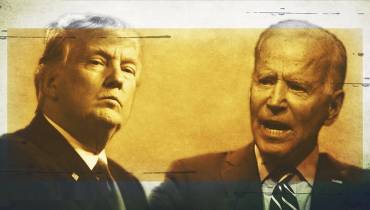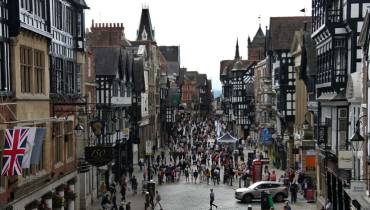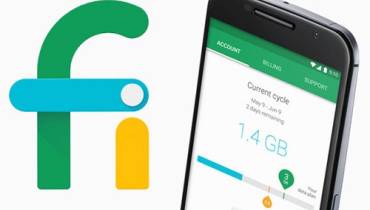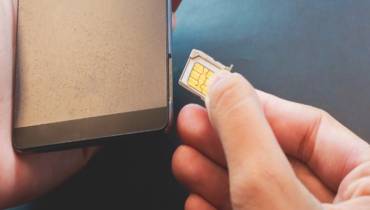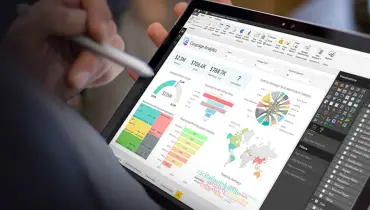Nigerians Reeling from Socioeconomic Losses Weeks after Twitter Suspension
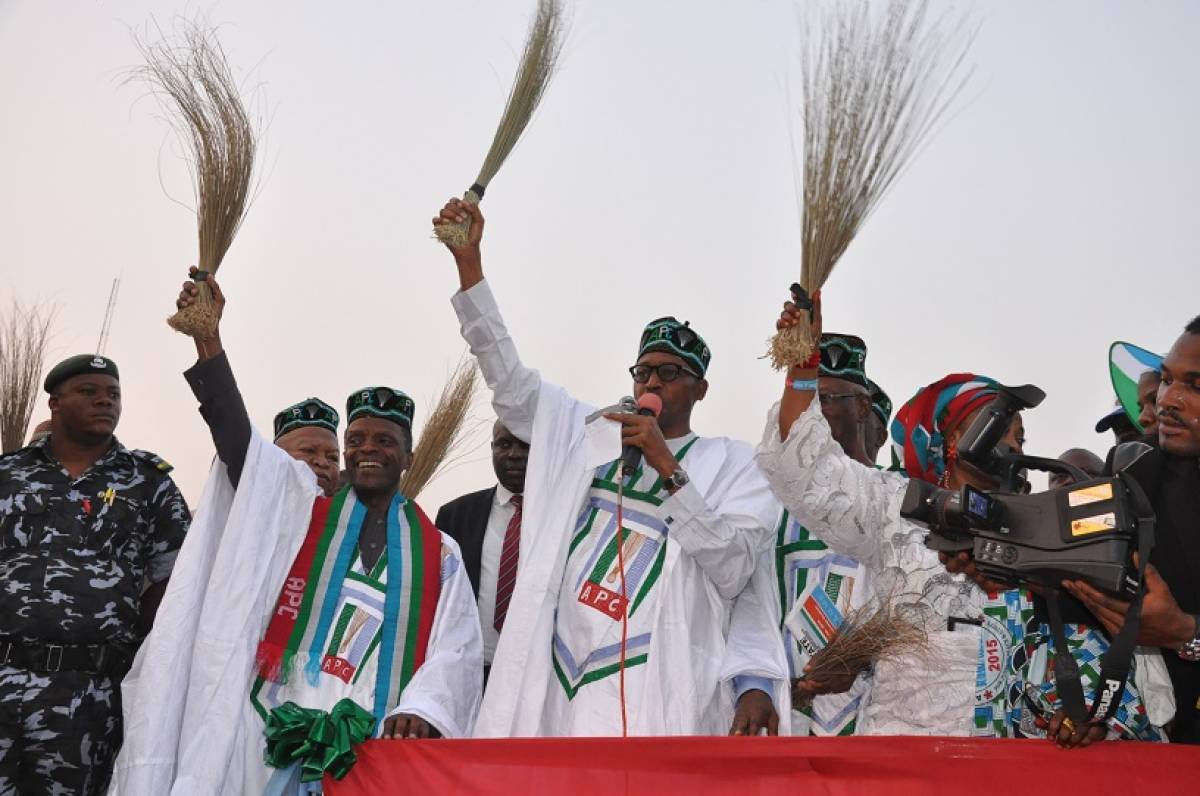
Nigerian President General Muhammadu Buhari holding a broom at a campaign rally. Photo: Heinrich-Böll-Stiftung / Wikimedia.
The digital service experience has not been the same for many Nigerian internet users since the suspension of Twitter by the federal government on June 5. The suspension came after a tweet by Nigerian President Muhammadu Buhari was deleted by the microblogging platform.
Buhari, a former military dictator, was warning the secessionist agitators from the southeastern part of the country of a repeat of the 1967-70 Biafra War in which an estimated 500,000 to 2 million civilians died mainly from starvation.
“Many of those misbehaving today are too young to be aware of the destruction and loss of lives that occurred during the Nigerian Civil War. Those of us in the fields for 30 months, who went through the war, will treat them in the language they understand,” the now-deleted tweet read.
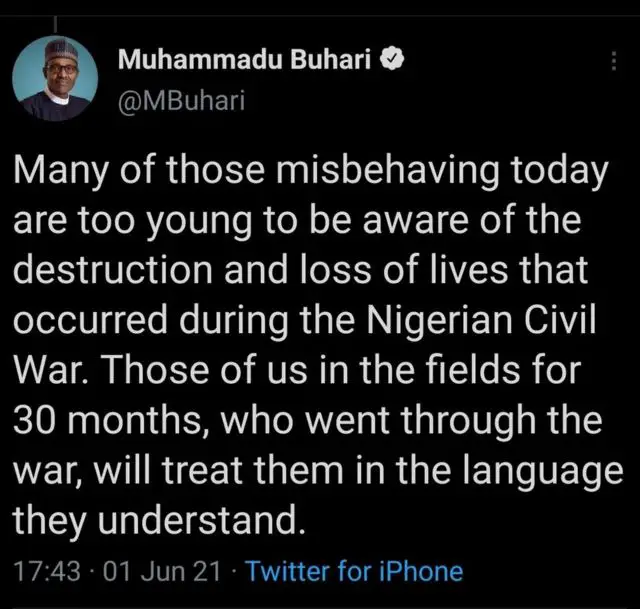
The statement, which Twitter flagged for violating its rules, was considered “genocidal” against the Igbo people, who still nurse the pains of the bloody civil war. It generated uproar on the platform, leading to its deletion.
In reaction to this, the government placed an indefinite suspension on Twitter and ordered internet service providers to block access to the platform, restricting about 40 million users. Ever since then, the ripple effects are significantly noticeable on the social and economic lives of many Nigerians.
The Ripple Effects
An internet watchdog organization, NetBlocks, reports that Nigeria loses $250,000 every hour the Twitter suspension is in place, making it a daily loss of $6 million.
Twitter, along with Facebook, command the most usage among Nigerian social media users. It serves numerous business and social engagement purposes, ranging from advertising, job-hunting, and networking.
Many SMEs and digital marketers build their businesses around the platform to reach their customers and promote their products and services. Most large organizations such as banks and telecom operators also use the microblogging platform for the same purpose, including sharing job openings.
In addition, Nigeria has the largest tech startups in Africa, and most of the startups rely on Twitter to attract investments. For many of these businesses which are still grappling with the economic downturns of COVID-19, blockage to Twitter deals a huge blow on their trajectory. They have since been counting their losses, especially as the faceoff enter weeks without an end in sight.
Twitter is also about the biggest platform for social and political interaction in the country. It gives the Nigerian youths a voice to air their views on various ills bedevilling the country, especially the emergence of the current administration in 2015. It was their major focal point during the October EndSars movement, calling for an end to police brutality in the country.
The platform has also been used to raise funds for the sick and vulnerable, locate missing persons, and summon ambulances. In May, Twitter played a major role in unravelling the kidnapping and killing of a job seeker in the country. All these explain why Nigerians are not taking the blockage lightly.
Nigerians Accessing Twitter Via VPNs
Many Nigerians have been using the Virtual Private Network (VPN) to access Twitter to bypass the blockage. Among them are prominent politicians and religious leaders, many of whom opined that the suspension was unconstitutional and a violation of the right to freedom of speech.
In response to their defiance, the government threatened to prosecute those who continue to tweet via VPN. The planned crackdown was, however, swiftly challenged by a human rights organization, SERAP. The ECOWAS Court judge, who presided over the lawsuit, has since ruled that the Nigerian government refrains from the planned sanctions.
Despite the VPN usage, however, the effects are still much telling. For instances, large financial organizations, media houses, telecoms and many other big companies remain absent from the platform. Obviously, they don't want to anger the government for fear of sanctions.
Many digital marketers also lament cancellations of upcoming engagements by their clients. Also, given the data security risks associated with VPNs, not everyone is comfortable using the networks.
Some reports also suggest that the Nigerian government is discussing with China on the possibility of creating an internet firewall, which will help restrict access to Twitter via VPN. The said proposed tool is similar to China's Great Wall, which blocks access to major social media platforms, such as Twitter, Facebook, Instagram and Google, in the Asian country.
The government is also considering Koo as a replacement for Twitter. A few days after the suspension, the Nigerian government, along with some government officials, registered an account on the Indian-owned social media. But for most Nigerian youths, Koo could be far from a worthy replacement for their much-cherished Twitter.
Reactions Trail the Ban
Meanwhile, the ban has also generated reactions from the international community. Among those condemning the government's action are the diplomatic missions for the E.U., U.S., UK, Canada and Ireland. The Joe Biden administration has also twice issued statements against the ban and called for a reversal.
The U.S. "condemns the ongoing suspension of Twitter by the Nigerian government and subsequent threats to arrest and prosecute Nigerians who use Twitter,” the Department of State stated in a statement on June 10. On June 14, a renewal of the condemnation was issued by a U.S. government official, Akunna Cook.
Though there have been talks that representatives from Twitter and the Nigerian government are meeting ways to resolve the ban, there hasn’t been any tangible movement since then.
As the suspension enters weeks with many economic and social effects, Nigerians hope for a timely resolution on the issue.








